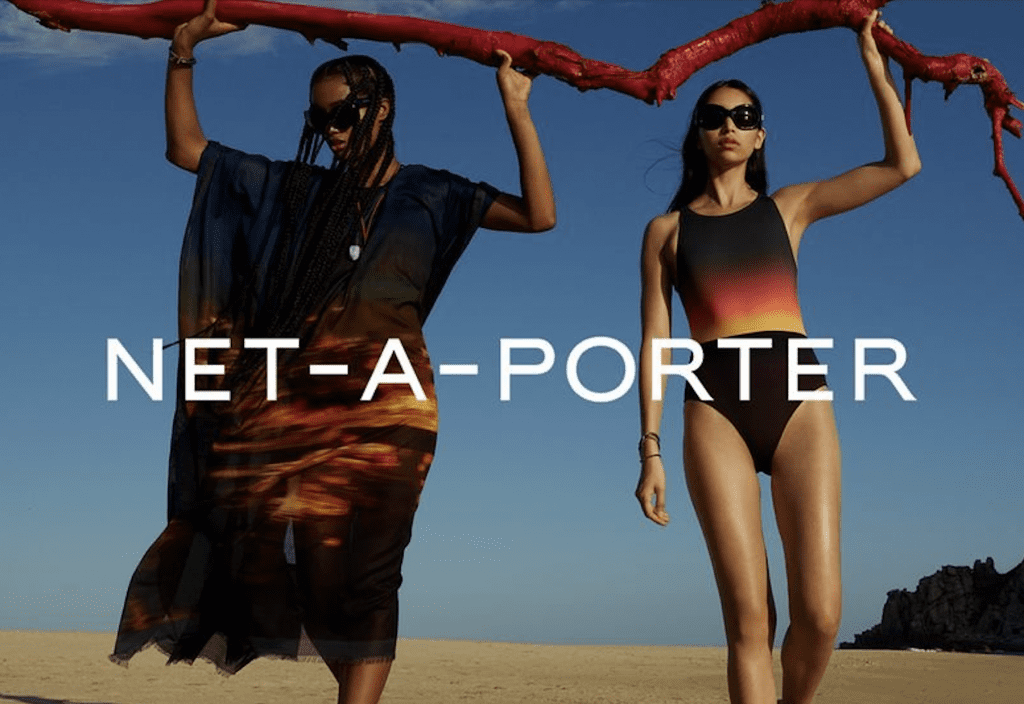Richemont and Farfetch have finalized the long-rumored deal in furtherance of which Richemont will sell a 47.5 percent “non-controlling” stake in Yoox-Net-a-Porter to Farfetch in exchange for a 10 to 11 percent stake in the latter company. In a statement on Tuesday, Richemont revealed that Symphony Global, one of the investment vehicles of Mohamed Alabbar, which currently maintains a Middle Eastern joint venture with YNAP, will also take a 3.2 percent stake, making YNAP “a neutral industry-wide platform,” and “laying a path towards Farfetch potentially acquiring the remaining shares in YNAP [and] bringing together these highly complementary businesses.”
The partnership marks “a step change in Richemont Maisons’ omnichannel distribution capabilities,” the Swiss luxury goods group revealed on Tuesday, noting that the “landmark transaction” represents a move “towards the digitalization of the luxury industry.” Richemont, which also owns Cartier, Van Cleef & Arpels, Alaïa, Baume & Mercier, and Vacheron Constantin, among other brands, will sell of the nearly 50 percent stake in YNAP to Farfetch in exchange for over 50 million Farfetch shares, stating that the carrying value of Farfetch’s investment will be written down to “the expected fair value less costs to sell, resulting in a charge to the consolidated income statement of the Group.”
Based on Farfetch’s share price on August 23, 2022, Richemont “currently assesses the write down to be approximately EUR 2.7 billion” ($2.68 billion).
“Through this partnership, Richemont and YNAP will leverage Farfetch’s technology platform to advance their Luxury New Retail program,” Richemont revealed in a statement on Tuesday. “YNAP will adopt Farfetch Platform Solutions to facilitate its shift towards a hybrid retail-marketplace model,” while Richemont “will adopt Farfetch Platform Solutions to advance the delivery of the omnichannel strategy of its Maisons, which will also join the Farfetch Marketplace, boosting, among other categories, Farfetch’s watches and jewelry offering.”
Reflecting on the deal, Bernstein analyst Luca Solca said in a note on Tuesday that on its face, “this seems an excellent deal for Farfetch, which is securing – depending on the extent of the e-concessions in terms of product range – a very welcome boost to traffic generation via the Richemont e-concessions, of which Farfetch had an acute need (see the very disappointing GMV growth performance of the past few quarters).”
In a note of their own, Jefferies analysts Flavio Cereda and Kathryn Parker contend that Farfetch stands to gain the “YNAP brand and assets (if they want them; full control is an option, of course) for likely [upwards of] 1 billion euros,” a move that would enable the London-based retailer to “increase its global share further.” (It is worth noting that as of now, Farfetch seems like the “only possible acquirer,” given that Alibaba, which was involved in a $1.1 billion mega-deal that first brought it, Farfetch, and YNAP owner Richemont together back in 2020, plays no part in the newly-announced deal).
In addition to boosting market share, what Farfetch “really want[s],” according to Cereda and Parker, is likely Cartier, namely, its .com operations and eConcession on the Farfetch marketplace. (Cartier will, in fact, adopt Farfetch Platform Services to power its e-commerce operations and similarly will launch e-concessions on the Farfetch Marketplace, along with other Richemont brands.) Farfetch founder José Neves revealed in a call on Tuesday that “the launch of Richemont Maisons e -concessions on the Farfetch Marketplace is a step change in our strategy for hard luxury, which represents more than 20 percent of the luxury industry globally, but just 3 percent of Farfetch sales, and is an area where we see much stronger customer demand relative to the supply we have had to date.”
The announcement follows from almost two years of reports that the parties were working towards a deal. TFL previously reported that a close read between the lines of the parties’ “global strategic partnership” – paired with additional factors, including Farfetch’s quest for profitability, and for leadership in the global online luxury goods space, something a merger (and the corresponding consolidation) would certainly help it to achieve – seemed to suggest that the deal could be the first part of a larger multi-step transaction between the parties, namely, a potential move by Richemont to sell off a stake in YNAP to Farfetch.
More broadly, the deal comes in furtherance of a larger consolidation in the luxury segment. In addition to tying Richemont to Farfetch, it will create interesting ties between some of the biggest players in luxury, including by bringing Richemont together with Gucci, Bottega Veneta, Saint Laurent, and Bottega Veneta’s parent company Kering, given that Artemis, the controlling shareholder of Kering, is an existing investor in Farfetch. In much the same way, the deal links both Richemont to Chanel, which revealed in February 2018 that it maintains a minority stake in Farfetch. Still yet, it is worth noting that Farfetch has done some shopping of its own in recent years, acquiring the Milan-based New Guards Group, the “brand platform for luxury brands’ design, production and distribution” that maintains exclusive license agreements with – and in some cases, ownership majority stakes in – brands like Off-White, Palm Angels, and Heron Preston in 2019 for $675 million.











